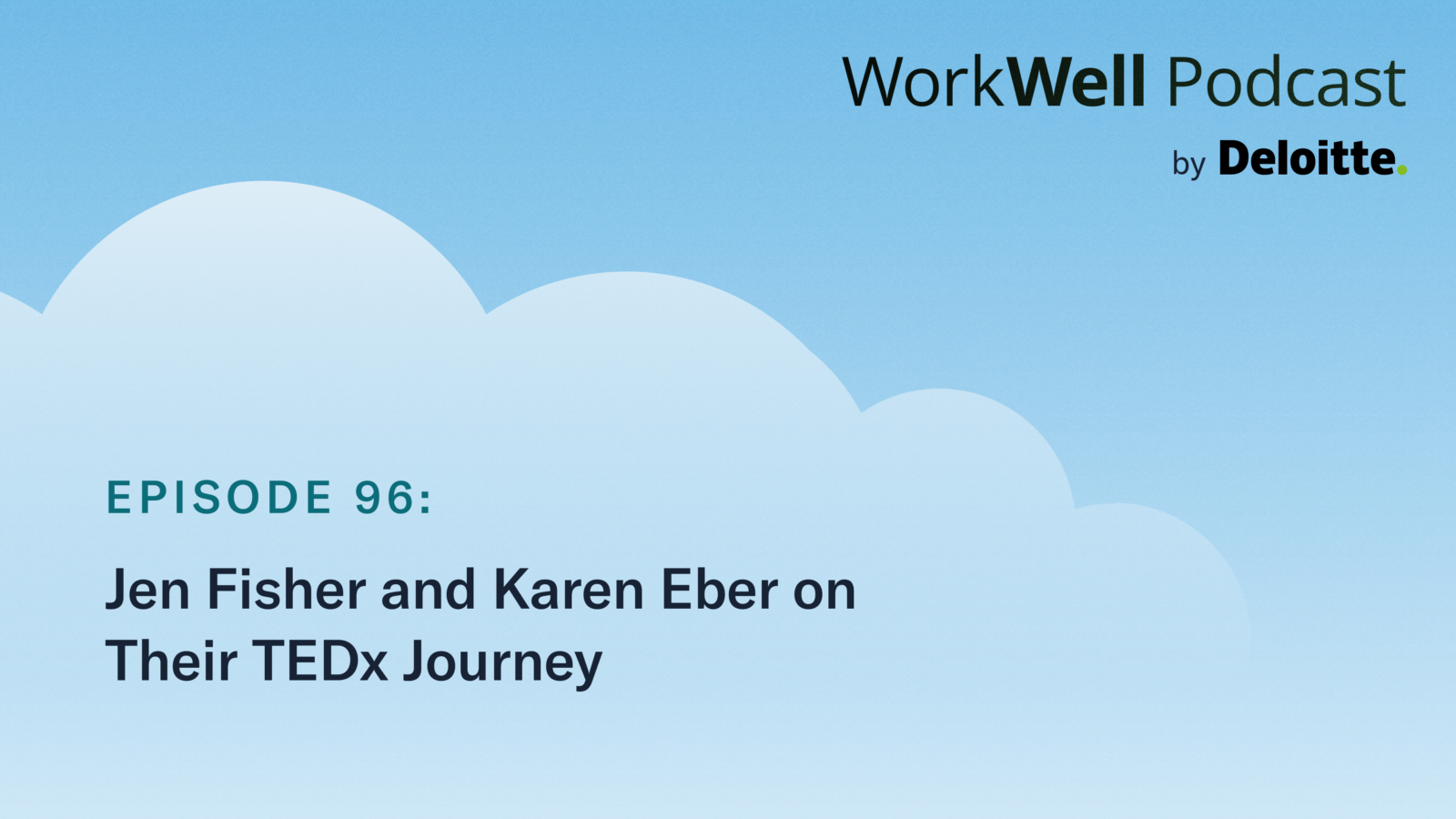In the WorkWell Podcast, by Deloitte, Jen Fisher — Human Sustainability Leader at Deloitte and Editor-at-Large, Human Sustainability at Thrive Global — sits down with inspiring individuals for wide-ranging conversations about how we can develop a way of living and working built on human sustainability, starting with ourselves.
This week, Karen Eber, storytelling guru and the author of The Perfect Story: How to Tell Stories that Inform, Influence, and Inspire, shares advice on how to be a powerful public speaker. And Jen shares how Karen coached her in preparation for giving her own TEDx talk on the future of work.
Jen on overcoming her fear of public speaking:
“When I got invited to give a talk at TEDx Miami, I was both really excited and incredibly nervous. I have a lot of passion to help others see a different way to live well and work well. Sharing my experience is core to my mission and who I am. But public speaking has always been a fear of mine. So how does someone overcome their anxiety of public speaking to share their story with the world? As a successful TEDx speaker herself, Karen was my own TEDx coach and storytelling guru. And I’m really excited to share that my TEDx talk on The Future of Work is out, about practical ways that we can all come together to create a better world of work by focusing on human sustainability. It explores my personal experiences with burnout and cancer, and how these experiences shaped my vision of the future of work.”
Karen on what to keep in mind when planning a talk:
“Get really clear on the reason why you want to give a talk. It’s not about standing on the circle and having the attention on you or having a talk go viral. It’s about an idea that you want to share in your own way. The criteria for these talks is: why you, and why this idea? Also it’s important to consider your audience. In Jen’s case there were two categories. One was all the people who were going to be in the hall listening to the story live, and the other was the people that would watch the recording. If you don’t engage the audience in the hall, you end up with a flatter recording and it might not be as interesting. And if you only focus on the recording, you don’t engage the people in the hall. Your audience, Jen, had a variety of experiences, but they have all struggled with challenges and burnout and probably know people who have struggled with difficult illnesses. And we focused on making this something that anyone in person or listening on the recording could connect with.”
Karen on what to do if you freeze on stage:
“I’m going to let you in on a secret that most people don’t know, and that happens quite frequently on TED and TEDx stages. People just get brain overload and they go blank — and it is completely fine. There’s nothing to be embarrassed about. People in the audience respond to that vulnerability, they’re supportive; they want you to be successful, and they cheer you on. So if you freeze on stage, just ask someone in the audience where you left off, collect yourself, and make a joke about it. Do whatever helps you get back into it. It’s not any type of failure — we’re all human and that’s totally fine.”
Jen on the importance of saying “no”:
“In the months leading up to my TEDx talk, there were things in my life that I needed to say ‘no’ to in order to create the appropriate space for me to do it well. So I stopped recording this podcast for a period of time, and I stopped reading, which I love. I recognized that I was needing more sleep. And I adjusted my workouts so that they weren’t as intense, so I had more energy to give to the talk. I think that level of self-awareness is important, knowing that saying ‘no’ to other things is saying ‘yes’ to giving the best talk that you’re capable of giving.”
To hear more from Jen and Karen, listen to this full episode of WorkWell here, available wherever you get your podcasts. Visit the WorkWell library for the full collection of episodes.


